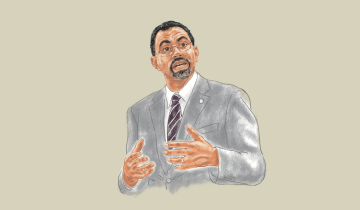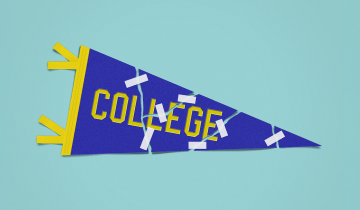Autumn means college application preparation time for high school seniors seeking to attend university. But preparation starts before that; it starts with the college adviser. According to an Inside Higher Ed and College Pulse’s survey, only 55% of college applicants say they were advised on required coursework for graduation. USC College Advising Corps (USC CAC) looks to amend that and directly works with Los Angeles-based students to navigate the pathway to college. Over 10,000 students are provided college advising services each year through USC CAC.
“Contrary to the trend of national media stories focusing on the declining interest in college, so many of our students want to attend college,” said Emily Chung EdD ’15, interim executive director for the USC Center for Enrollment Research, Policy and Practice (CERPP). “They don’t always know how to make it happen—how they can afford it, which colleges to consider or how to write a compelling personal statement. That’s where our highly trained USC CAC advisers can provide individualized college guidance.” USC CAC is a program within the CERPP research center.
A majority of the high school students served by the program are underrepresented, first generation college students or come from low income families. “Our USC CAC advisers are recent college graduates who are near-peer role models, often from similar backgrounds as the students they advise,” Chung added. “As the USC advisers are full-time at high schools, they can build deep relationships with the students and school staff. The program is intended to reach as many students as possible, with no minimum GPA requirements, income restrictions or course requirements.” USC CAC advisers work to reach as many students as possible and to inform them of their postsecondary options, whether that is a community college for vocational training or out-of-state four-year university. According to Chung, research has shown that it is more important than ever to earn a college degree—from better health outcomes to increased career satisfaction and greater lifetime earnings.
Established in 2013 through a partnership between CERPP and the national College Advising Corps, USC CAC’s goal is to raise the number of California students who attend and complete college by encouraging and assisting high school students with their college searches, college applications, financial aid and, ultimately, making the transition to postsecondary education.
“Being a first-generation student, I always knew I wanted to attend a university, but didn’t know about college apps, financial aid or deadlines,” said Adamaris Figueroa, who participated in the CAC program while attending Dominguez High School within the Compton Unified School District. “I was fortunate enough to have the support of my USC CAC advisor during my senior year who guided me the whole way through.”
Figueroa graduated in 2018 and attended California State University Long Beach where she earned her bachelor’s in psychology. In an advisee-adviser, full-circle moment, she is currently a first-year CAC adviser at Dominguez High School. “I know how helpful having an adviser who guides you through your college application journey can be, especially being a first-generation college student,” she added. “I look forward to supporting each and every one of my seniors and giving them the guidance to reach their personal goals.”
Working with eight Los Angeles County school districts, recent college graduates are placed in 40 local high schools to serve as full-time college advisers. The program currently serves Compton, Duarte, Glendale, Long Beach, Los Angeles, Lynwood, Paramount and West Covina Unified School Districts. USC CAC partner schools are selected based on need, with a student population that are 93% students of color and 85% of students who are socioeconomically disadvantaged.
Abigail Hernandez attended Bell High School, which is part of Los Angeles Unified School District. During her college application process she found that the USC CAC adviser on-site was available to help all students, no matter what college they wished to attend. “What I found the most useful was the fact that she was there Monday through Friday,” Hernandez added. From her experience as a student, similar college advising programs were only on-site once a week or every other week. “Having that person there every day—I knew that there was going to be someone in the college center to answer my questions and not just USC-related,” she added.
Hernandez attended UCLA and graduated in 2021 with her bachelors of science in psychobiology with a minor in Chicano Studies. Also a first-year USC CAC adviser at Bell High, she hopes to be a mentor to many high school students who need assistance during the college application process.
During the 2022-23 academic year, 43 advisers met with over 11,000 students, of whom 92% were high school seniors. USC CAC advisers directly assisted nearly 7,000 students to submit 23,622 college applications; 6,957 financial aid applications were completed; and at least $28 million was secured in college scholarships.
“This year marks USC CAC’s 10 year anniversary,” added Chung. “For CERPP, our USC CAC program is where the rubber hits the road—research on equity can become equity in practice.” Since its launch, the program has grown from three advisers serving three schools in one district, to 43 advisers serving 40 schools in eight districts. In less than a decade, USC CAC has helped over 70,000 high school students to apply and be accepted into at least one college.
Information on USC CAC's 10th anniversary celebration to be announced. Support USC CAC and help continue their work to make a lasting difference in the lives of students, shaping their futures and breaking barriers to higher education.




